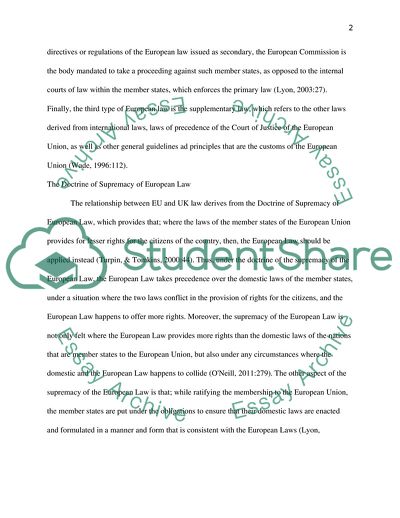Cite this document
(Analyze the Doctrine of Supremacy of European Law Essay, n.d.)
Analyze the Doctrine of Supremacy of European Law Essay. https://studentshare.org/law/1814197-module-title-law-of-the-european-union-assignment-title-the-relationship-between-eu-and-uk-law
Analyze the Doctrine of Supremacy of European Law Essay. https://studentshare.org/law/1814197-module-title-law-of-the-european-union-assignment-title-the-relationship-between-eu-and-uk-law
(Analyze the Doctrine of Supremacy of European Law Essay)
Analyze the Doctrine of Supremacy of European Law Essay. https://studentshare.org/law/1814197-module-title-law-of-the-european-union-assignment-title-the-relationship-between-eu-and-uk-law.
Analyze the Doctrine of Supremacy of European Law Essay. https://studentshare.org/law/1814197-module-title-law-of-the-european-union-assignment-title-the-relationship-between-eu-and-uk-law.
“Analyze the Doctrine of Supremacy of European Law Essay”. https://studentshare.org/law/1814197-module-title-law-of-the-european-union-assignment-title-the-relationship-between-eu-and-uk-law.


